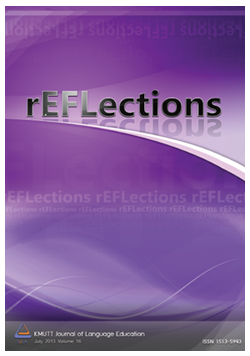Can SLA research and ELT practice be of benefit to each other?
Main Article Content
Abstract
This paper examines implicit beliefs about language learning through a critical analysis of foundation English language course descriptions at Thai universities. Course descriptions provide an overview of the broad goals and methods for specific English language learning contexts. Critically analyzing such descriptions allows us to identify how course designers view the nature of language and language learning, and these views can be compared with the research literature on second language acquisition (SLA) and language learning. The data examined come from 22 foundation English language courses at nine of the largest public universities in Thailand. The data were analysed for word frequency, thematic categorization, and collocations. The findings show that language learning is viewed as the acquisition of skills rather than knowledge; a variety of approaches to language learning are used; skills learning involves building on existing abilities, knowledge learning involves giving, and understanding involves enabling; and little attention is paid to attitudes and non-language objectives. These findings were compared against the literature on SLA and language learning using six recently published texts. The methods used to teach English at Thai universities largely reflect the language learning research literature, but the objectives of teaching are rarely considered in the field of SLA. If SLA research is to have practical implications for language teaching, more attention needs to be paid to the learning of language skills.


